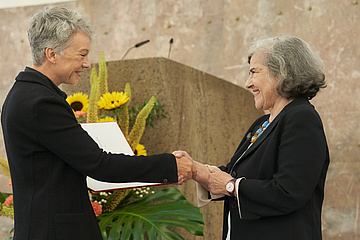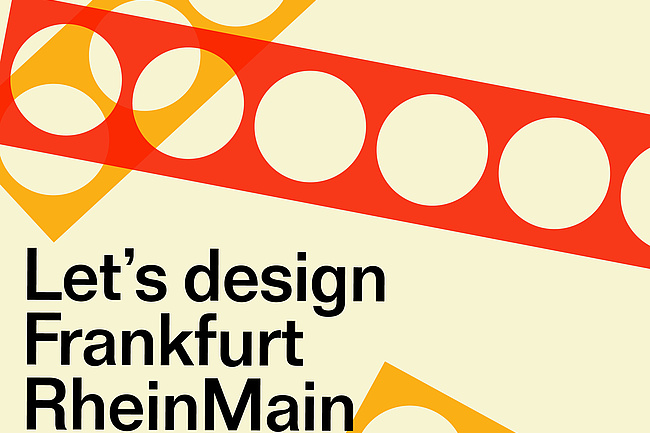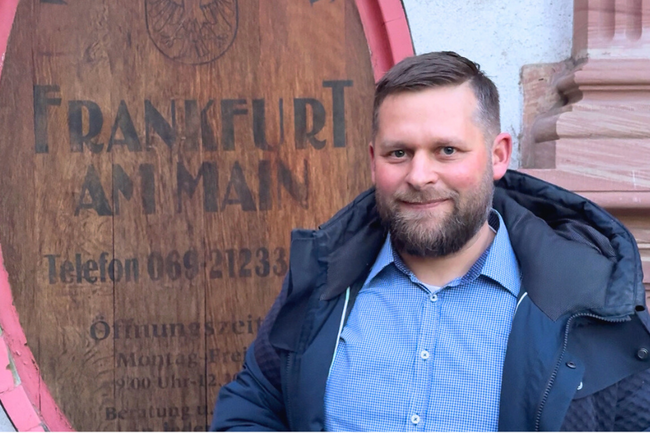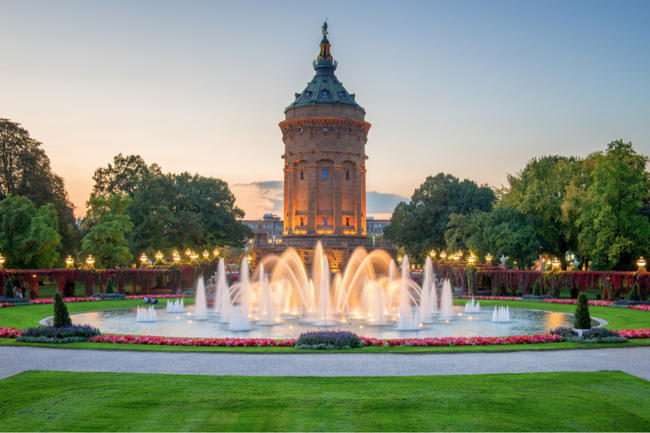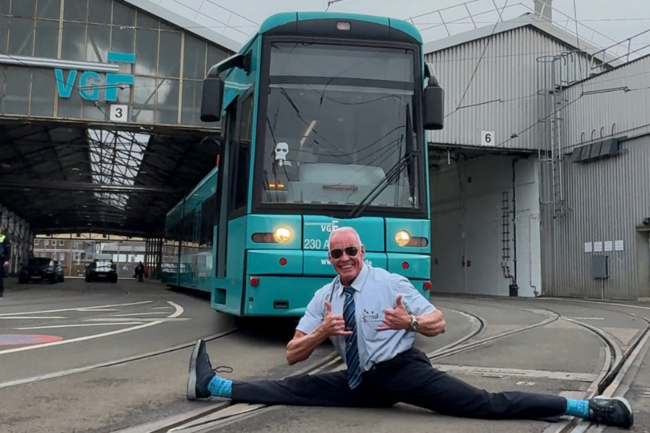Every three years, the city of Frankfurt am Main awards the cultural prize named after Johann Wolfgang von Goethe in memory of him and endowed with 50,000 euros. This year, the writer Barbara Honigmann was honored with the Goethe Prize. The award ceremony took place on Monday, August 28, in the Paulskirche in the presence of the laureate and guests from politics and culture as well as numerous interested citizens. Ina Hartwig, Head of the Department of Culture and Science, presented the award certificate. The laudation was held by the songwriter and lyricist Wolf Biermann. The ceremony was musically framed by the Oxalis Quartet, which played pieces by Schubert, Mozart and Beethoven.
In her welcoming speech, Head of the Department of Culture Hartwig praised the award winner as an important chronicler of Jewish life in divided Germany: "We are proud and happy to award Barbara Honigmann a literary figure whose novels vividly tell of the fate of Jewish people in the GDR as well as of the artistic bohemia in East Berlin." Drawn from her own experiences and often autobiographical, Honigmann's texts also open up perspectives on historical contexts and developments. "Although they are individual stories, all her novels have something paradigmatic, even contemporary-historical, that bears witness to the hopes and disappointments of Jewish people in the socialist part of Germany."
Biermann, a longtime friend and companion of Honigmann's, spoke the laudatory speech. "Something special shaped the life and work of Barbara Honigmann as well as mine," Biermann said. "We remained exceptional specimens in Germany, because we had both come into this world as children of Jews and Communists. [...] I will occasionally ask my girlfriend indiscreetly in private whether she too still sometimes feels the phantom pain since the loss of our childhood faith in a communist fool's paradise." To conclude his equally eloquent and personal speech, the laudator intoned "two old Berlin love songs": "Berliner Pflanze" and "Und als wir ans Ufer kamen."
Honigmann said in her acceptance speech, "My path as a German is marked many times by Goethe readings, Goethe theater, Goethe poems, Goethe prose. My path as a Jew is marked by exile narratives and survival stories and by the deeply implanted and ever-present sense of an 'us,' the Jews, and 'them,' the Germans, among whom we lived." Her intense preoccupation with Judaism against the backdrop of the Shoa also connected her with other Jewish authors of the generation after her, she said, such as Robert Schindel, Maxim Biller, Robert Menasse, Esther Dischereit and Rafael Seligmann. "All of these writers, who in no way feel or have even constituted themselves as a group, write out of the experiences of their Jewish origins, a kind of self-questioning, who are we, where do we belong, where is our place, how do we hold up to the difficult legacy of our families, where do our paths go."
Honigmann was born in Berlin in 1949. Her parents had survived in exile and had remigrated in 1947 to help build a better Germany. She studied theater at Humboldt University and then worked as a dramaturg and director in Brandenburg and at the Volksbühne in Berlin. Since 1975 she has lived and worked as a freelance writer. Even before she left the GDR in 1984, she began to deal intensively with her Jewish roots, which resulted in a commitment to Orthodox Judaism. Among the most important books in her extensive oeuvre are "Roman von einem Kinde. Erzählungen" (1986), "Soharas Reise" (1996), "Alles, alles Liebe" (2000), "Bilder von A." (2011), "Chronicle of My Street" (2015) and "Georg" (2019). Barbara Honigmann was awarded the Aspekte Literature Prize in 1986, the Kleist Prize in 2000, the Jean Paul Prize for Lifetime Achievement (2021), and the Literature Prize of the Konrad Adenauer Foundation in 2022. She is also the author of essays and radio plays as well as plays. Barbara Honigmann also works as a visual artist; she lives with her husband in Strasbourg. Her books have been translated into several languages.
The Goethe Prize of the City of Frankfurt am Main is awarded every three years on Johann Wolfgang vo nGoethe's birthday, August 28, to a personality "who has already achieved prominence through his or her creative work and whose creative work is worthy of an honor dedicated to the memory of Goethe." This year, in addition to the permanent members - these being the Lord Mayor (represented at the time by the Mayoress due to the vacancy), the Head of the City Council, the Head of the Department of Culture and Science, the Hessian Minister for Science and Art, the President of Goethe University and the Director of the Freies Deutsches Hochstift - the Board of Trustees included the writer Zsuzsa Bánk, the poet and writer Marion Poschmann and the literary critic Beate Tröger.
Past laureates were Amos Oz in 2005, Pina Bausch in 2008, Adonis in 2011, Peter von Matt in 2014, Ariane Mnouchkine in 2017, and Dževad Karahasan in 2020. Previous laureates include Sigmund Freud (1930), Hermann Hesse (1946) and Thomas Mann (1949). The first Goethe Prize winner was Stefan George in 1927.







